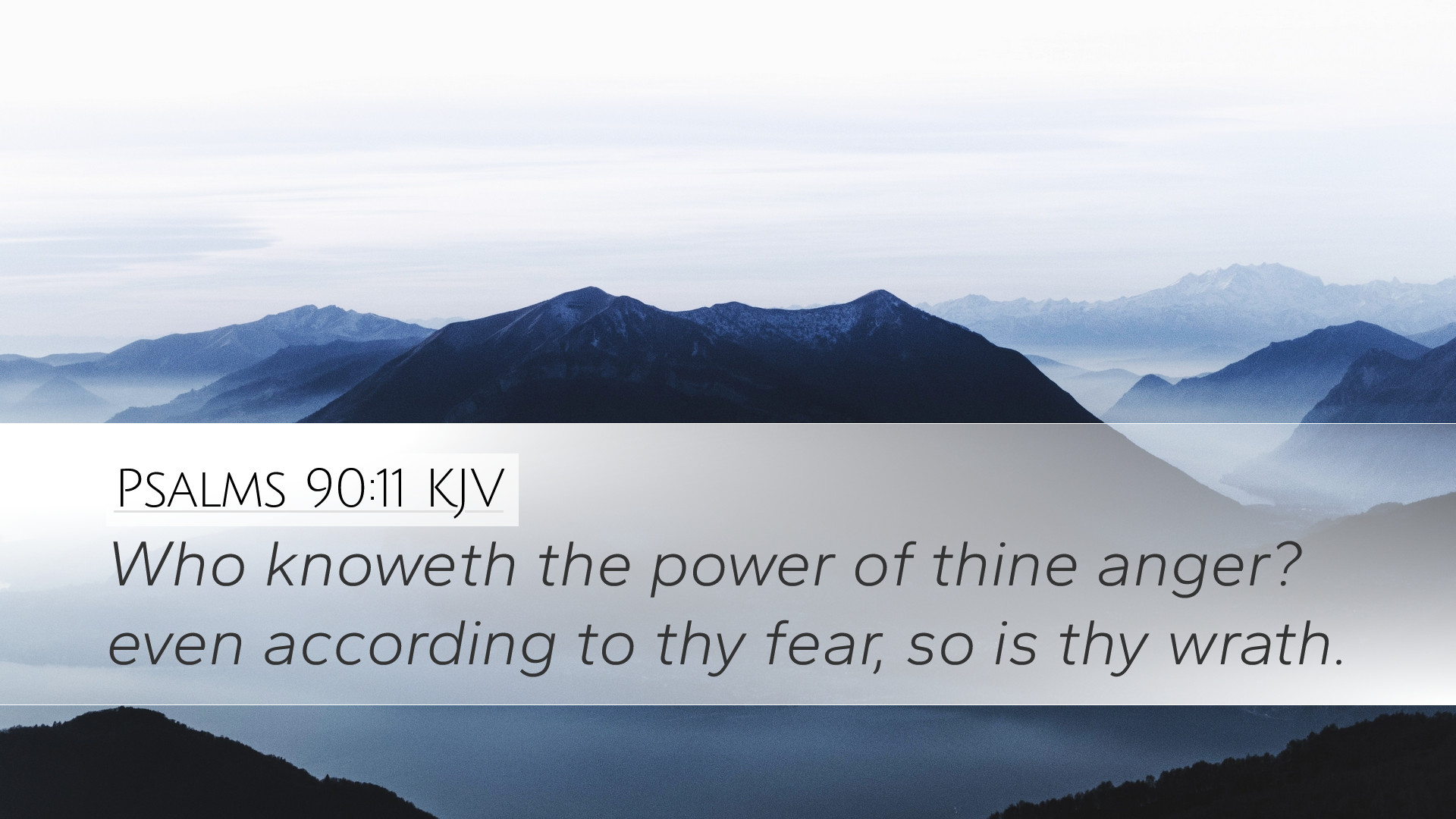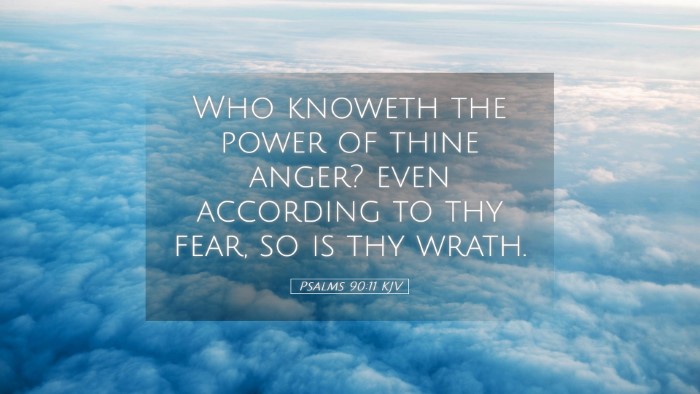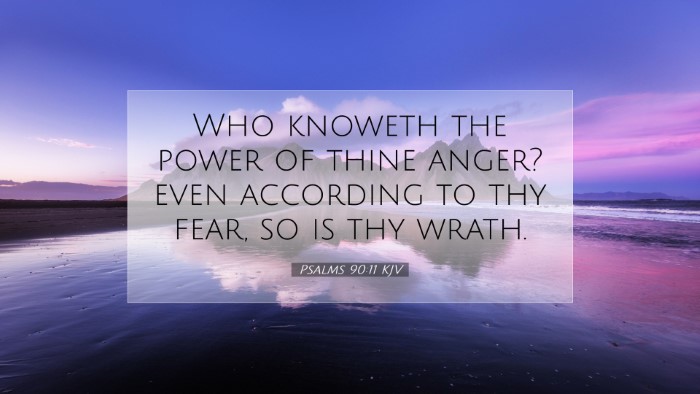Psalms 90:11 Commentary
Verse: "Who knows the power of your anger? For as the fear of you, so is your wrath."
Introduction
Psalm 90 is attributed to Moses and stands as a poignant reflection on the transience of human life and the everlasting nature of God. Verse 11 highlights a profound truth about human understanding of divine anger and the righteousness encompassed within that anger.
Contextual Analysis
In this Psalm, the great contrast is drawn between the eternal nature of God and the frailty of humankind. Moses frames this within a larger narrative of God’s graciousness and man's mortality, ultimately leading to a poignant plea for wisdom and understanding.
The Power of Anger
The Psalmist poses a rhetorical question regarding the "power of your anger." Such a question implies a deep reverence and acknowledgment of God's sovereignty. As noted by Matthew Henry, the Psalm captures the depth of divine wrath that is both just and formidable. God's anger results from His holiness and His righteousness, and understanding that power invites fear and reverence among the faithful.
Human Awareness
Albert Barnes emphasizes that if humans understood the fullness of God's anger, they would live with much greater vigilance. In light of this, humanity often displays ignorance concerning the severity of divine displeasure. Comprehending the gravity of sin and its repercussions underscores a vital aspect of our relationship with God. This awareness instills a healthy fear that leads to repentance and ultimately, to grace.
The Fear of God
The latter part of the verse mentions, "For as the fear of you, so is your wrath." This connection indicates an equivalence between the fear God inspires and the intensity of His wrath. Adam Clarke expounds on this concept by suggesting that our fear of God should generate a profound respect that correlates to the acknowledgment of our own sinful tendencies. This sentiment aligns with the broader biblical narrative that evokes fear not as a paralyzing force, but as a motivator toward holiness.
Theological Implications
This verse beseeches theologians and scholars alike to delve into the duality of God's nature – as both a loving creator and a righteous judge. The interplay between fear and wrath ultimately points back to God's overarching plan of redemption through Christ. The awareness of God's wrath serves a purpose, leading believers to seek peace in His presence as articulated in Romans 5:1, where peace comes through justified faith.
Fear Leading to Wisdom
The reverence of God is intrinsically tied to wisdom. According to Proverbs 1:7, "The fear of the LORD is the beginning of knowledge." Thus, understanding the implications of divine anger should lead believers toward a deeper pursuit of wisdom and understanding in their relationship with God and His creation.
Spiritual Reflection
For pastors and spiritual leaders, this verse poses a challenge to lead congregations in understanding the seriousness of sin and the reality of divine judgment while simultaneously emphasizing God's grace and mercy. The awareness of God’s anger should instigate a sincere dialogue regarding accountability and the importance of living in a manner that embodies holiness.
Practical Applications
-
Encouraging Humility: Encourage church members to approach God with sincerity, understanding their position as creations before the Creator.
-
Teaching on the Nature of God: Hold teachings that outline the dual aspects of God’s nature, covering His justice alongside His love.
-
Emphasizing Personal Accountability: Discourage complacency in spiritual matters by regularly discussing the consequences of living outside of God's will.
-
Promoting Repentance: Foster an environment where congregants feel safe to reflect on their lives and seek God's forgiveness.
Conclusion
Psalms 90:11 encapsulates a critical theological stance that ought to inform both personal faith and communal worship. The angst of humanity juxtaposed with the divine anger of God invites a need to acknowledge sin while celebrating grace. It is a reminder that knowledge of God's wrath should lead to a yielding to His wisdom, ultimately drawing us closer to His loving embrace.
As you reflect on this verse, consider how the fear of the Lord not only cultivates a deeper relationship with Him but also transforms our hearts and minds, positioning us to fulfill the great commission with holy boldness and unwavering reverence for His majesty.


